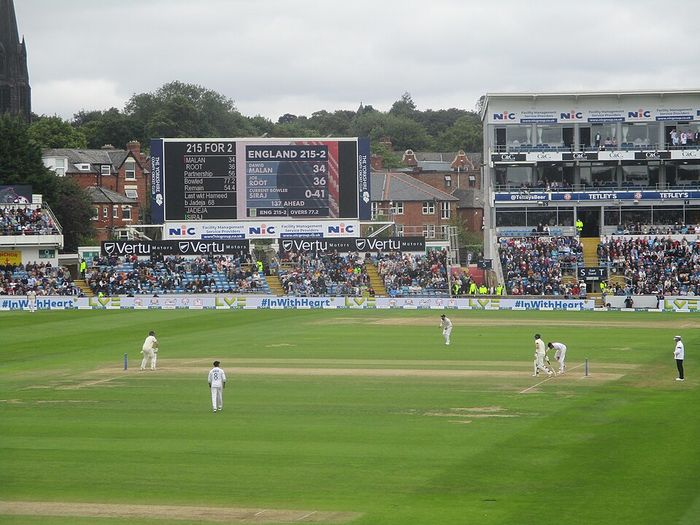Shamar Joseph: hope on the horizon for the West Indies, or another false dawn?
Chris Batten reflects on what the future looks like for cricket in the West Indies

Test Cricket is an amphitheatre that can provide spectacle and poetry like no other stage. Ben Stokes at Headingley in 2019. Geraint Jones, with Richie Benaud’s commentary, at Edgbaston in 2005. Shamar Joseph’s extraordinary spell of 7-68 to clinch an impossible victory for the West Indies over Australia last Sunday adds another layer to the game’s chequered heritage. As Joseph and a sea of West Indian players sprinted to the edge of the Gabba in jubilant celebration, while Brian Lara wept in the commentary box, it was impossible to not romantically recollect the golden age of West Indies cricket. In watching Shamar Joseph bowl, the cricket world sees a second coming of Michael Holding or Malcolm Marshall and the stranglehold their pace bowling held over world cricket through much of the 1970s.
The magnitude of the West Indies’ victory in the second Test over Australia cannot be understated. It was their first Test victory in Australia since 1997. It was a triumph for an extremely inexperienced West Indies side, with no Shai Hope or former captain Jason Holder, and seven uncapped players in a 15-man squad, against the No 1 side in the world, Australia, who have been impregnable for the last few years at home in Test matches. Former West Indies keeper Jeffrey Dujon had compared this Test series to “sending lambs to slaughter”. While Pat Cummins was lifting the T20 World Cup trophy in 2021, Shamar Joseph himself was working as a security guard and construction labourer to provide a basic income for his family. The West Indies’ success is the ultimate romantic underdog story.
The victory is also especially important in offering hope to the West Indian cricket supporter: a role that has proved increasingly bleak across the last decade. They have only won four out of 14 test series since 2019, ranking a lowly eighth in the world, and have performed similarly poorly in One Day International cricket; they failed to even qualify for the 2023 World Cup, with the Netherlands taking their place. Many argue these difficulties are not due to a lack of talent, but instead severe mismanagement by Cricket West Indies. They have fallen out over the years with many senior players, from Chris Gayle in 2011 to Sunil Narine being “disinterested” before the 2023 World Cup. Domestic cricket is similarly stagnating, being played on largely slow, spinning pitches that do not reward the exciting fast bowlers West Indies have historically produced. Commentators often worry that test cricket is “dying”, and it is close to its most vulnerable in the Caribbean.
Shamar Joseph offers new hope to challenge this decline. He is young, charismatic, and as he tore through Australia’s world leading batsman with raw pace, obviously reminiscent of the West Indies' past generation of great fast bowlers. His success, however remarkable, will not revolutionise the condition of Test cricket overnight. As Joseph competed a victory lap of the Gabba, his excitement contrasted sharply with the largely empty stands behind him. Test cricket is a wounded breed beyond solely the Caribbean.
Basic economics also constrain idealistic aspirations of a sudden West Indian resurgence. Cricket West Indies fundamentally lack capital. This prevents them offering senior players, like who Shamar Joseph will surely become, economic security through generous central contracts equivalent to the England and Wales Cricket Board. It also limits investment into regional cricket tournaments and facilities. Money within global cricket lies instead within the largely corporate, expanding realm of T20 Leagues. Teams from the Indian Premier League (IPL), owned by private billionaires and investors, can offer cricketers far larger sums of money than national boards can ever match.

Disturbed sleep and interrupted dreams: the life of a Test cricket fan
This is particularly alluring for many cricketers of Caribbean origin, many of whom have struggled financially growing up in ‘developing’ states. T20 contracts will offer Shamar Joseph, a former farm labourer from a rural Guyanese village, a world he could not otherwise experience. Peshawar Zalmi in the Pakistan Super League have already signed Joseph, and we can expect him to be a high profile name in the next IPL auction. While West Indies captain Kraigg Brathwaite may wish Joseph to become the lynchpin of a rejuvenated national Test side, it would not be unreasonable for Joseph to prioritise the glitz and pay checks of global T20 leagues.
Celebration of Joseph’s staggering success at the Gabba therefore has to be tempered. While it was a true romantic victory of David over Goliath, it would be foolhardy for cricket fans to hope of an immediate return to the West Indies of their 1980s pomp. Cricket West Indies still face profound structural issues that one victory won’t change, and T20 leagues may well hold the money to draw Shamar Joseph away from test cricket. His pace offers new hope on the horizon, but it remains a horizon fraught with uncertainty.
 Comment / Plastic pubs: the problem with Cambridge alehouses 5 January 2026
Comment / Plastic pubs: the problem with Cambridge alehouses 5 January 2026 News / Uni-linked firms rank among Cambridgeshire’s largest7 January 2026
News / Uni-linked firms rank among Cambridgeshire’s largest7 January 2026 News / New movement ‘Cambridge is Chopped’ launched to fight against hate crime7 January 2026
News / New movement ‘Cambridge is Chopped’ launched to fight against hate crime7 January 2026 News / SU stops offering student discounts8 January 2026
News / SU stops offering student discounts8 January 2026 News / Cambridge businesses concerned infrastructure delays will hurt growth5 January 2026
News / Cambridge businesses concerned infrastructure delays will hurt growth5 January 2026








